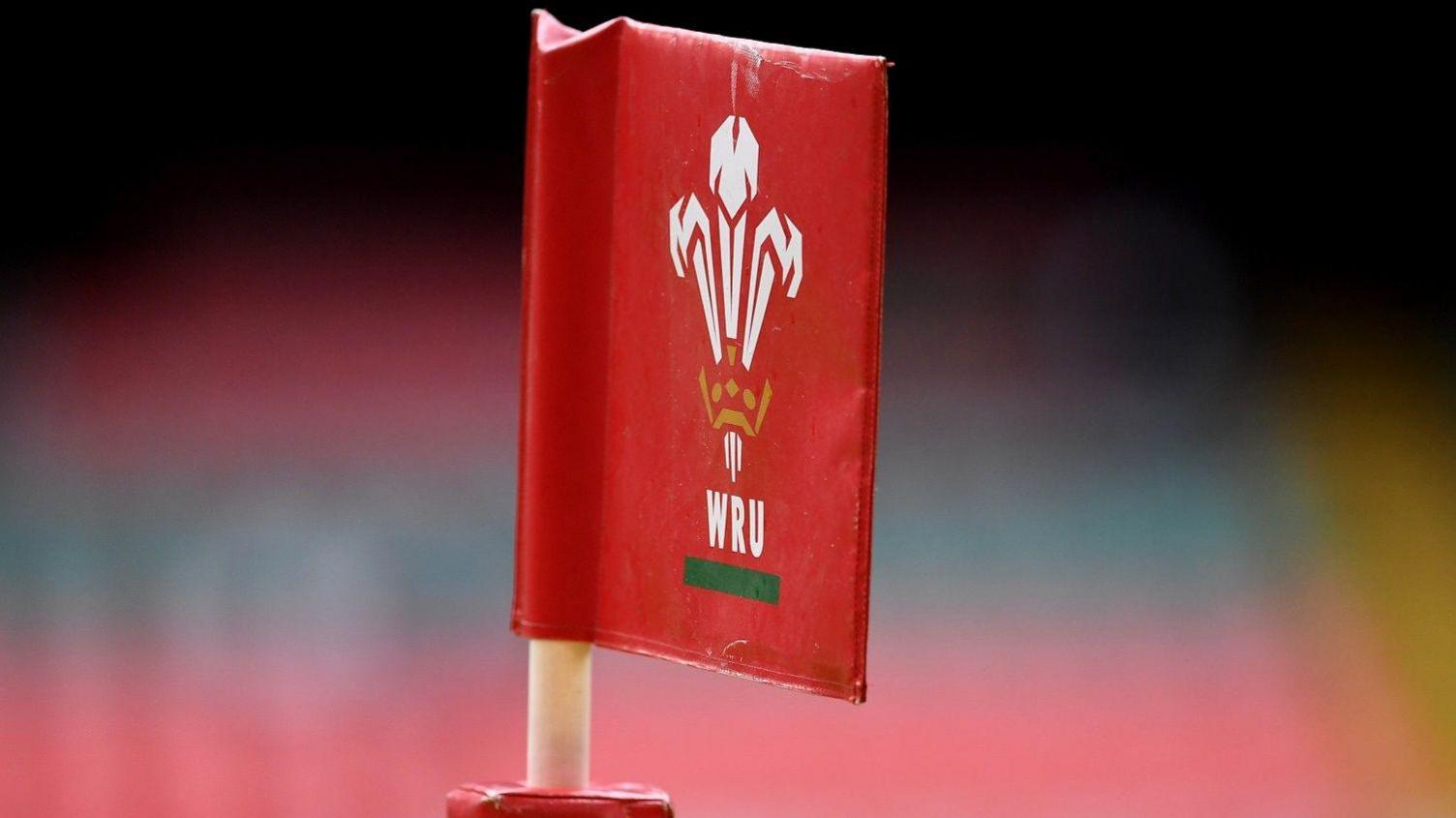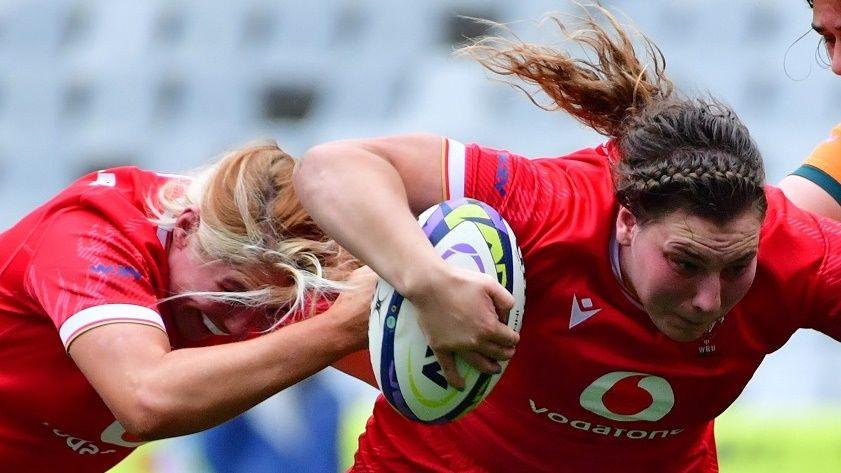WRU to apologise for contract row but denies sexism

- Published
The Welsh Rugby Union (WRU) is to apologise for its handling of contract negotiations with the senior women's team, but has refuted fresh allegations of sexism.
WRU chair Richard Collier-Keywood and chief executive Abi Tierney admitted serious failings in the process and that it was "absolutely clear" the governing body should say sorry to players.
In an email, seen by the BBC, players were threatened with withdrawal from WXV2 and, subsequently, next year’s World Cup as talks broke down.
They were issued with a "final offer" ultimatum on 2 August, saying if they did not sign within a three hour deadline, planned matches against New Zealand, Scotland and Australia would not go ahead and the contracts would be withdrawn.
The new claims of sexism and inequality come less than a year after a damning independent review into the WRU's culture following a BBC Wales investigation.
"This is not a good day for us, we totally accept that. We should have done better and we didn’t, but we have learned our lessons and we will keep trying to improve," said Collier-Keywood.
A review of the contract negotiation process is expected to publish its recommendations later this month.
WRU faces new sexism allegations over Wales deals
- Published1 November 2024
WRU reveals five-year plan to save Welsh rugby
- Published26 June 2024
The woman aiming to change Welsh rugby
- Published18 August 2023
The WRU has been forced to bring forward publication of the review's findings following a report in the Telegraph, external on Thursday.
However, it has already revealed that the report found:
The WRU process for contracts failed to take into account the growth and rapid change of the women’s professional game
The WRU executive leadership accepted it was a mistake to issue a three-hour deadline
Strongly differing views on how to develop women’s rugby in Wales
Players were inexperienced at contract talks but were left isolated
Players considered strike action before the friendly against Scotland on 6 September
A lack of clear communication or transparency around the contract talks which created heightened emotions, made worse by poor behaviour from all parties at different stages
Sexism was not part of the motivation behind any failings
Collier-Keywood said: "There are some sweeping criticisms in the report as well as some strong recommendations of what we need to do differently.
"It is absolutely clear that we do need to apologise and engage with the national players over the recommendations."
He added that executive director of rugby Nigel Walker, involved in the initial negotiations, had accepted "things should have been done better".
'Sexism not apparent'
WRU independent board members Alison Thorne and Claire Donovan, tasked with carrying out the review, said while there had been poor behaviour, sexism had not been apparent.
"I've reflected on all the conversations we had with all involved over more than 50 hours and that [sexism] didn't come out," said Donovan.
"I had a 15-year playing career in rugby at a time when sexism absolutely was very much a part of how teams were treated, but I honestly did not get a sense that was part of the grievance or decision-making process.
"It was potentially a lack of respect and a lack of understanding of the importance of people’s position of power over that of the employees.
"There's a real determination to make things better for the Wales team but we may have lost our way in some of the conversations going forward."
The WRU has announced it is increasing funding of girls and women's rugby by £6m, to a total of £26m over the next five years.
'Blackmail'
The WRU announced it had awarded 37 full-time deals, proudly saying Wales were "one of the best paid international women’s teams in the world game".
But former Wales wing Jess Kavanagh accused the WRU of blackmail over those contracts and remains sceptical over whether or not lessons will be learned.
"We've been hearing apologies for years about different things happening in the WRU (but) apologies mean nothing until we see change," she said.
"The girls are still not happy with the contracts and to be forced to sign your contract, it's blackmail in itself.
"We're in 2024 and we shouldn't have that happen in any workplace.
"It's hard to come back from things. Do they still have the same respect for the staff? You have got to respect and want to play for those people."

Wales have won just three of their 11 international matches in 2024
Wales have slumped badly on the field, finishing bottom of the 2024 Women's Six Nations with just the one win over Italy.
Collier-Keywood said the disharmony around contracts had likely been a major factor.
"There was a lot of stress involved in the process which was unnecessary, and I think the performance was affected," he said.
"People were distracted and that’s our responsibility."
The contact were finally signed just before Wales travelled to South Africa for WXV2 in September - but this did not stop Wales from losing the opening two matches.
The Welsh government, which was heavily critical of the WRU following last year's misogyny scandal, said it is concerned by the latest allegations and was looking to urgently meet the WRU.
A spokesperson added: "We would always expect our national sporting bodies to lead by example."